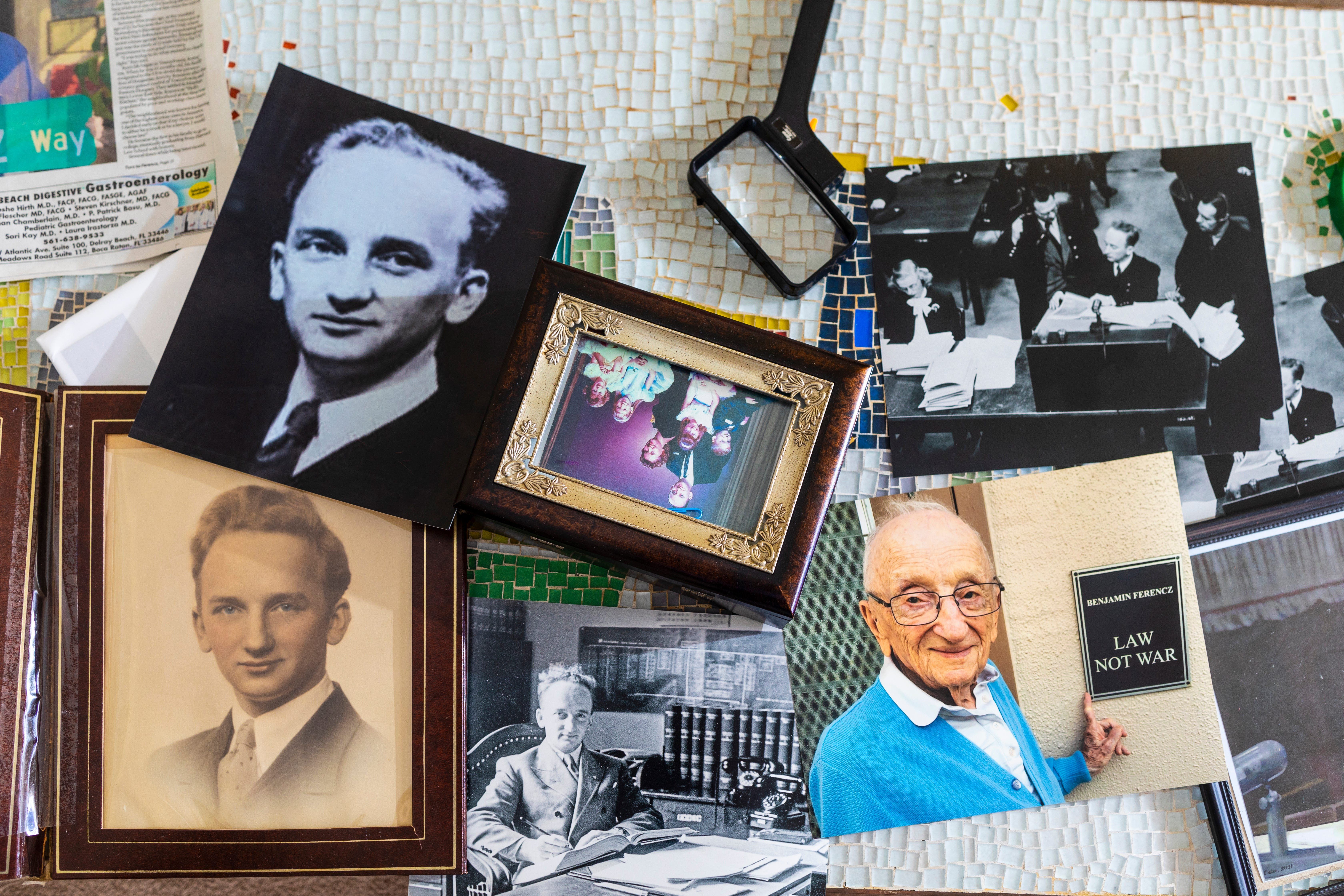At 27 years old, with no trial experience to speak of, Ben Ferencz entered the courtroom at Nuremberg in November of 1945. He was tasked with holding to account a regime that had slaughtered millions and tried to annihilate his own people. Acting as chief prosecutor, Ferencz secured convictions against 22 Nazis.
Ferencz, the last-surviving prosecutor at the Nuremberg trials of Nazi war criminals, passed away last week at the age of 103. As a child, he and his family fled anti-semitism in Romania. After finishing law school at Harvard, he joined the US army, taking part in the Normandy landings and the Battle of the Bulge. He was then assigned to General Patton’s HQ as part of a special unit investigating Nazi atrocities, interviewing survivors and witnessing first-hand the horrors of the concentration camps. That experience would shape the rest of his life. He would remain a warrior, not on the battlefield but in the public arena as a professor of international law and tireless campaigner for justice for the victims of genocide.
The Nuremberg trials marked a watershed moment in the history of modern human rights law. Never before had an international tribunal sought to hold global leaders to account for starting a war and carrying out crimes against humanity. They also included a new term- genocide – as part of the indictments.
In the decades since, the notion that war criminals may face justice has – however imperfect in practice – become an accepted part of international norms. That’s especially true since 2002 when Ferencz’s efforts helped to establish the International Criminal Court (ICC) at the Hague. International courts have judged the perpetrators of genocides in Rwanda and the former Yugoslavia in ways that were unimaginable when Ferencz was a child.
Still, more than 75 years after Nuremberg, international justice remains a work in progress. Participation in the ICC is voluntary, and even the world’s most powerful democracy, the United States, refuses to do so, out of concerns that it would limit American sovereignty. That puts Washington – which has faced its own human rights allegations in the past – in the unsavory company of serial abusers like Russia, China, Syria, or Saudi Arabia, which also refuse to ratify the ICC’s underlying statutes.
Despite a recent ICC warrant against Russian President Vladimir Putin, for example, there’s little chance that he’ll face prosecution. Bashar al-Assad, for his part, has survived the civil war he helped create, and is unlikely to face justice for the gruesome crimes that his regime committed during the war.
The coming years pose particular challenges to the cause of international justice. For one thing, the emergence of new major international powers may make it even harder to secure universally-applicable mechanisms of human rights law. Technological advances, meanwhile, enable state and non-state actors to spread disinformation in an attempt to erode trust in facts and evidence. For instance, the Russian disinformation narratives have asserted that the civilian massacre in Bucha, Ukraine was staged.
Nevertheless, Ben Ferencz and his colleagues gave today's international human rights lawyers and activists the tools to document evidence and gather witness testimony, and the mechanisms to hold leaders accountable.
Ferencz himself was under no illusions about the challenges of creating a system that would bring war criminals to justice. In his later years he remarked “Nuremberg taught me that creating a world of tolerance and compassion would be a long and arduous task.”
But he also reminded us that “if we did not devote ourselves to developing effective world law, the same cruel mentality that made the Holocaust possible might one day destroy the entire human race.”
